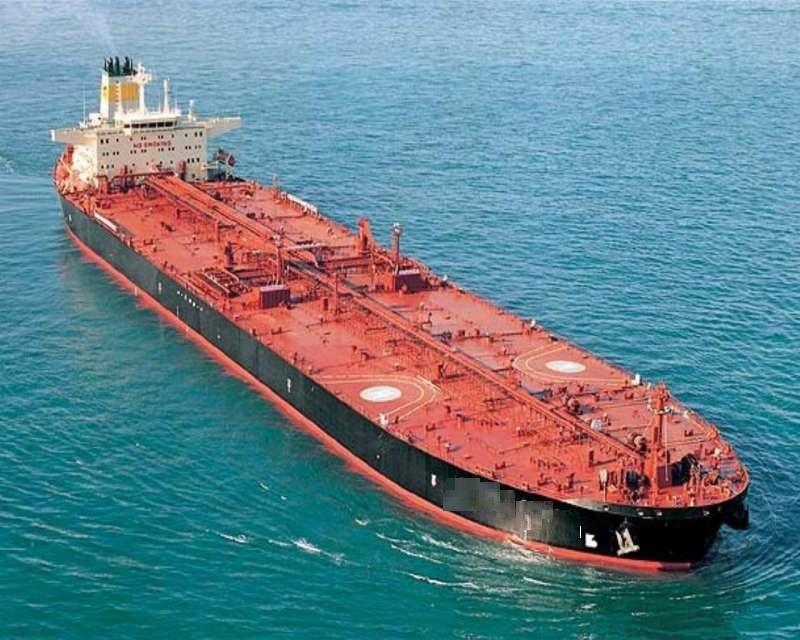
In yet another example of the world economy shell game coming to a hard stop amid the coronavirus pandemic, oil is incredibly cheap as demand plummets and speculators panic sell and even pay others to store it in a desperate bid to never actually possess the barrels they bought on paper, writes Jordan Pearson in an article published in Vice.com
IMAGE: FLICKR/BERNARD SPRAGG. NZ
The Economics of Storing Oil
The ship
While most prices are available upon request, listed prices tend to run from $10 to $20 million USD, and the ships run the gamut in terms of their capacity.The ideal ship for this plan needs to hit a balance of affordability and ample capacity, given, ahem, the current uncertainties in the oil market.
- For the price and capacity, the best deal available now is a 274 metre-long Suezmax crude oil tanker for $17 million.
- The Suezmax was built in 2000 by Daewoo Heavy Industries, is currently somewhere in Africa, and has a capacity of 159,057 DWT, or dead weight tons.
- As its name implies, the Suezmax is the largest a ship can possibly be to transit the Suez Canal while full of oil.

determining the actual carrying capacity of ships
The ship’s DWT doesn’t tell you the whole story about how much oil it could hold, though, since it includes personnel and equipment.
The actual amount of oil the ship can carry will depend on what type it is, as well, but the Suezmax has ample room and the price is certainly right.
Caveat: The ship is listed “AS IS,” which means you should be a smart ship consumer and kick the hull in a couple random spots and grunt “A-yup” a few times.
The Oil
With a ship secured, we’re set up to store a lot of oil at sea. But how much, and what kind, and, well, how?
A commodity trader told editor-in-chief Jason Koebler that the buying part is actually pretty easy: pay an accredited trader to trade on your behalf and purchase oil contracts.
Crucially, those monthly contracts must expire so you can take physical possession of the oil.
- This is what commodity traders are desperately trying to avoid now by panic selling and crashing the price, but it is exactly what we want.
- If we were to buy oil at the “spot” price (thereby receiving it immediately), it would cost us quite a bit more: roughly $22 per barrel.
- Let us rather exploit the Vegas bookie-like nature of the oil market. Futures for West Texas Intermediate (WTI) oil were in the negatives this morning and are currently $5 per barrel.
According to the U.S. Energy Information Administration, a back-of-envelope calculation for a ship’s capacity in barrels is to take 90 percent of its DWT and convert it into barrels per metric ton, adjusted for the weight of the type of oil being transported.
The available DWT for cargo for our Suezmax is then roughly 143,151 metric tons.
Types of Crudes
There are a few different types of crude oil, organized by how light or heavy they are, and how sweet (low toxicity) or sour (high toxicity).
- A light, sweet crude such as WTI is what we want in order to get the most bang for our buck.
- WTI futures are dirt cheap as well, which is good for us, because everything is nonsense!
Invest At the Right Moment
Using an online converter, we can plug in the API gravity (weight) of WTI—39.6 degrees—and the available DWT, to get a barrel figure: 1,088,741, or just over one million barrels’ worth of sweet, light, Texas crude.
To get all of that, via futures, it would cost us $5 million right now, or even less if we were smarter (we are not smarter).
- If you were very smart and perceptive, and bought in at the market’s lowest point yesterday ($-37.63), you would have been paid $40,969,323.83 to take the oil.
- That means you would have made enough to have bought the tanker and would have had roughly $24 million left over to figure out the logistics of getting all of the oil from Oklahoma onto the boat.
Can you make money?
Obviously, right now, oil is basically worthless. So, even if this plan was pulled off perfectly, in the current moment you’d end up with a ship full of oil and millions less in your bank account, but not much else.
But hey, let’s do the math!
According to the U.S. Department of Energy, crude oil is typically stored in salt domes due to cost savings.
Storing crude this way costs roughly $3.50 per barrel in capital costs, whereas storing it in above-ground tanks costs $15 to $18 per barrel.
Our ship cost $17 million, and it can hold about a million barrels, and so taking just the up-front cost of the ship into account, storage would cost us about $17 per barrel.
Not great, but not horrible.
Now, to break even we will have to somehow sell the oil for more than the cost to store it and buy it, a combined $23 per barrel in costs.
I won’t pretend to be able to prognosticate about oil prices in the future but let’s assume that WTI futures return to January 2020 levels: roughly $55 per barrel.
Hot damn, we’ve more than doubled our money for a profit of $32 per barrel, or a total of $34,839,712 in profits.
So, it turns out that if you have $23 million laying around, a ton of contacts in the oil industry, and a hound’s nose for profit during a crisis, congratulations, you’re the worst person in the world! Also, you can probably make some money storing oil and selling it later.
The Missing Factors
This rough math is definitely missing a lot of factors (cost of crew and maintenance, fees, and other expenses), but the point isn’t that you could actually make money if you bought a rusty oil tanker.
The point is that the world we’ve built on pumping oil incessantly and trading it on markets is absurd and capitalism is uniquely incapable of properly administering goods in a crisis, or any other time.
It’s the same reason why farmers are destroying crops and dumping milk while people go hungry, and why I’m considering buying an oil tanker.
Did you subscribe to our daily newsletter?
It’s Free! Click here to Subscribe!
Source: Vice.com
















